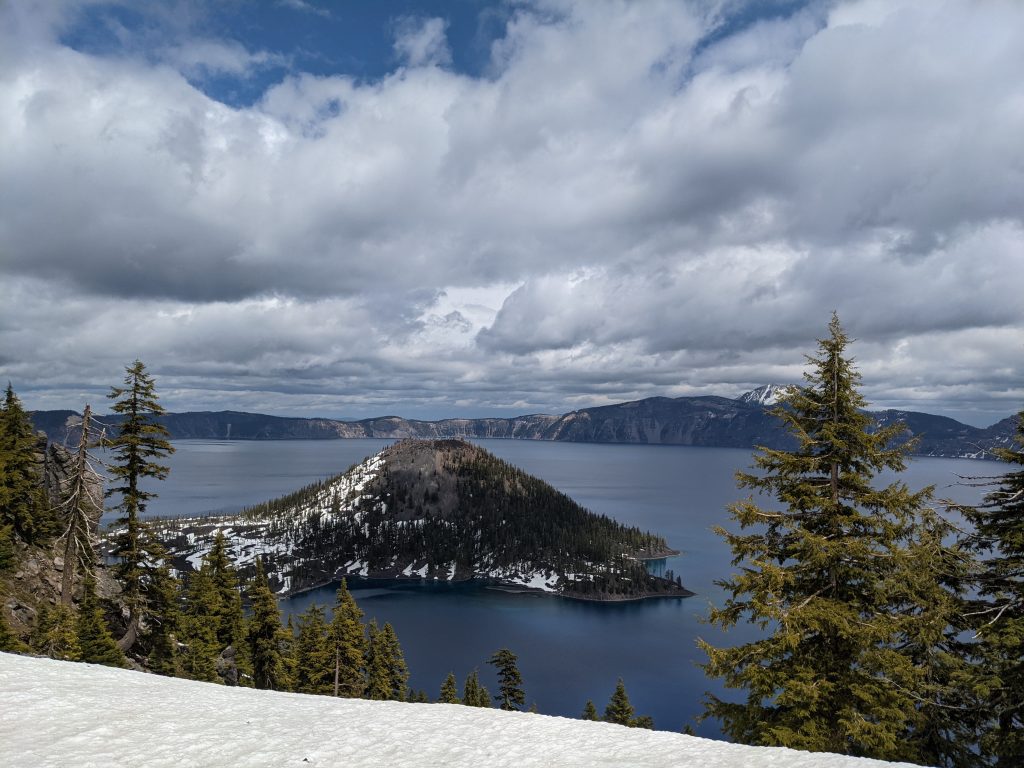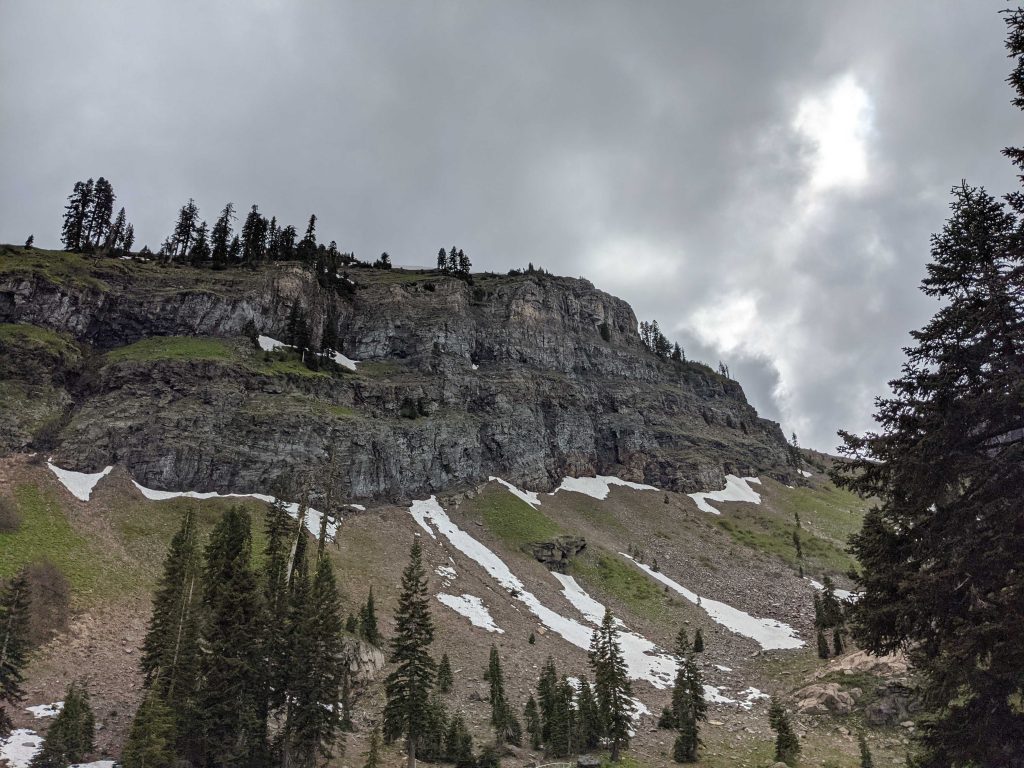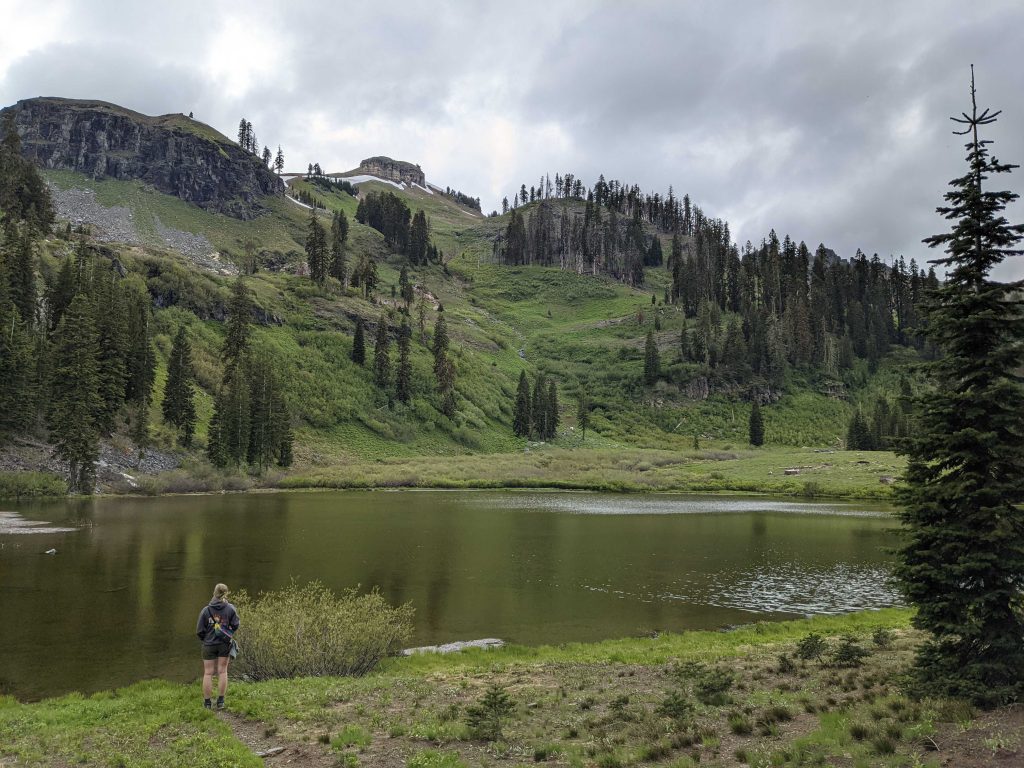Hello, my name is Josh Hubers. I'm a Voyage Builder here at Airship, and my wife and I live in an RV.
There are many components to RV living and working as a remote software developer, so I'm going to hit 3 key points you should know if you're interested: The Setup, Daily Life in Development, and Lessons Learned.
But first... a little background.
Now, I know what you may be thinking: "We chose the RV life because of the pandemic and the glamorous adventurous lifestyle." The truth of the matter is, until 2019 it was nowhere on my radar. That was of course... Until I met my wonderful wife. I'm not here to bore you with love stories though.
My wife is a travel nurse and it's always been a dream of hers since nursing school to cram all her possessions into 200 square feet and work on the road. She become infatuated with the idea the first time she heard of these so called "travel nurses" and working on the road. The bottom line of me signing my marriage certificate was, if I sign that dotted line, I'm hitting the road with her. (And in all reality, the day before our wedding, we actually brought our fifth wheel home).
And here we are, Summer 2021 on the road since January. Now, RV living looks different to everyone. Some people treat RV living as "time to get off grid, grow a beard, and shun civilization." Others are true road warriors. New weekend, new city. Moving to new locations before the next Javascript framework comes out. Some may become van lifers and work from 4" Android phones. Others may purchase half a million dollar motor homes and take 4 monitors with them.
My wife and I are very static in our movements. She works at a single hospital for ~13 weeks, so we plop our home down in an RV park and see the area (including as many national parks as possible) for a good amount of time. This comes with the great advantage that we can set up our RV to feel like home: Take decorations out, put things on shelves, and settle down.

The Setup: Home Office in an RV
My wife and I purchased a 33' 2009 Pilgrim International. We could have bought newer, we could have bought fancier, but we bought what fit our needs.
Much like choosing a framework for your next project, evaluate the problems you're trying to solve, how you see the project growing, and try to be forwarding thinking with the baggage you may be taking on.
After our purchase and our pandemic wedding hooplah was resolved, we went about remodeling the RV. While it's a well-known fact that 100% of all RV purchasers enjoy brown, tan, beige, and leafy forrest decor, we were in the 101st percentile. So we remodeled. We tore out carpet, trim, painted everything, and transformed it from a "run-of-the-mill 00's camper" to a place my wife and I can call our home.
Because it's just my wife and I, we converted the dining room slide out into my personal office. Where a large, bulky kitchen table once was, I put my desk, drawers, and all the tech equipment that my wife loves to look at.
Moving into the RV I decided to upgrade from two 1080p monitors to a single ultra-wide for "less stuff" and easier cable management. I still brought all my standard networking equipment (router, cable modem, raspberry pi's), and even my desktop computer to game with friends and family on occasion. Maybe most importantly, I found space for a junk drawer, and a junk cable bin. So that even without a TV in our home, I still have 6 emergency HDMI cables.
If you took all the contents of my office slide out and placed them in a home office, it would look like a standard office. And that's what's great about it. I traded my "office" in my old apartment, for an "office" in the RV and it looks and feels identical.
The one thing I get asked about the most is... the Internet. How do you stay connected?!
As mentioned previously my wife and I only move our home every 13 weeks. For those 13 weeks, we simply stay at an RV park that offers WiFi. We live in an ignorant age where WiFi is on the cusp of being an essential commodity, and while the RV and camping industry has been slow to adapt this commodity due to its own slew of challenges, a lot are surprisingly adapting.
The place where we are currently staying in Northern California has "okay" Internet. I get about 5 mbps down and 2 mbps up and it's not the most dependable. But, 5 mbps on a good day can still support Zoom calls and teleconferencing. Luckily in my role here at Airship I don't have to download any Docker images or work on large repositories, so I don't need huge swathes of download bits.
Of course all high available systems have built in redundancy. And that's why I have a 4G LTE modem and a 100 gb data plan from Cricket for when the RV park WiFi is swamped, it's got a case of the Mondays, or my wife and I book a long weekend out of town. I won't get into it, but there are many places online (such as /r/rvliving) that go through immense dialogs of getting their "off-the-grid RV internet" just right.
With 12 different cell carriers, 20 antennas mounted up, down, and backwards. I took a measured approach and decided, why buy any of that stuff ahead of time if I don't know what it's like out in the big blue real world. And so far, it's paid off. My Netgear 4G modem with no special antennas or hookups has done just fine.
Daily Development
My work day looks close to that of many others of the workforce working from home. I wake up, roll over about 5 times, really wake up, make some coffee, and get online. I gave up on virtual backgrounds quite a long time ago, so most people see my kitchen in the background, and I'm alright with that. Most people quickly learn that I'm a procrastinator when it comes to hand washing dishes. And I'm alright with that, too.

We just recently arrived here in California and I've been taking in as much patio time as possible, a luxury I couldn't afford at our last stop in New Mexico. I quickly learned what an extremely windy place the south west is in the winter and spring.
A good set of noise cancelling headphones is a smart idea for this lifestyle. Kids in the RV park may be noisy, your neighbor parked 10 feet away may not half a muffler on his truck. Or, if your like me, your wife works wacky 12 hour shifts and you either: 1. Don't want to wake her up with your music or conference calls, or 2. She's watching tv / listening to her own music 6 feet from you on her day off.
Lessons Learned (so far)
It's difficult for me to begin to describe how much I've learned about RV'ing from our first 5 months living in our fifth wheel. Allow me to keep these brief in the interest of a larger lesson I would like to conclude on.
- Get the right tow vehicle for your trailer.
- Double and triple check the conditions of all tires that travel down the road.
- Ensure you've calibrated your trailer brake before taking any mountain passages.
- Always check your lights.
- Treat your tow vehicle like it's an extension of your own home.
- Youtube lots of things.
- Figure out how every component of your RV works.
- Research the typical weather conditions and hazards of the area you're going to stay in.
- Learn some basic plumbing, electrical, and HVAC.
- Learn basic automotive maintenance skills.
That's my short list. Now that it's written out. Let me give you a nugget of peace to calm your anxiety. I didn't know 75% of those things until I actually set out and began the process. Even to this day I don’t know a lot about much of these things.
Which leads me to my biggest lesson learned...
Knowledge, Skills, and Learning
Before leaving in January, I was an anxious wreck. And I still have strong anxiety when it comes to one thing. Towing. Prior to this chapter of my life I had very little towing experience. Forget about driving a 1 ton diesel long bed with a 33' fifth wheel attached.
(And I know some of you are laughing at me because 33' isn't even "that long" of a trailer).
It was and is still quite daunting. It's hard work and my anxiety is only amplified by the trailer being our permanent residence. Aside from some pieces of furniture and home items my wife and I managed to pass off to family for storage. It's our stuff. It's insured, we can get new stuff, but it's our home. So before we set out I watched towing videos. What to watch out for when towing, how to navigate gas stations, tips and tricks for parking and navigating. I learned about towing.
Then the day came when I backed up our truck to the fifth wheel pin box, hitched it, and drove off. I realized none of the knowledge I had acquired had adequately prepared me for the real life sensation of moving a 10,000-lb. trailer. But I kept rolling forward, and I pulled more and more loops in the parking lot, and made it out to the road. I was gaining the skills I needed to achieve my wife and I's goal.

What my knowledge did provide however, was the foundation to start and the wisdom to avoid wrong turns. My heart was racing the first time I merged onto a highway and got up to 70mph. My wife got annoyed with me every gas station we stopped at hearing the words "I don't think I can make that swing". Here we are though 2,000 miles from home and I can reverse a 33' camper. With every new challenge came a new opportunity to sharpen my skills and learn even more.
What more can be said about software development? Some projects that developers work on really matter. Life or death matter. You can sit down and read Rust literally by "the book". But until you press some plastic keys down how skilled will you be in the language? If you hadn't read the book at all, you would be hopeless. The fastest airship captain in the world is completely useless to his passengers if he doesn't know how to read a map. Add in dashes of forgiveness, grace, and passion, and you'll enter into a vicious cycle of learning. Knowledge of something that leads to developed skill that leads to even more knowledge to obtain.
The biggest lesson I've learned from living in this RV for 5 months so far is this: even an ounce of knowledge on a subject can lead you to skills you could never even dream of obtaining. Oh. And to make sure your black tank valve shuts 100% of the way. Not just 95% of the way, or else you'll be in for a really poopy day.
Do you want to join our crew?
If you want to have adventures like Josh while working at a remote-first company, check out our current openings here at Airship!
We currently have THREE positions available now - view all and apply on Lever here.


